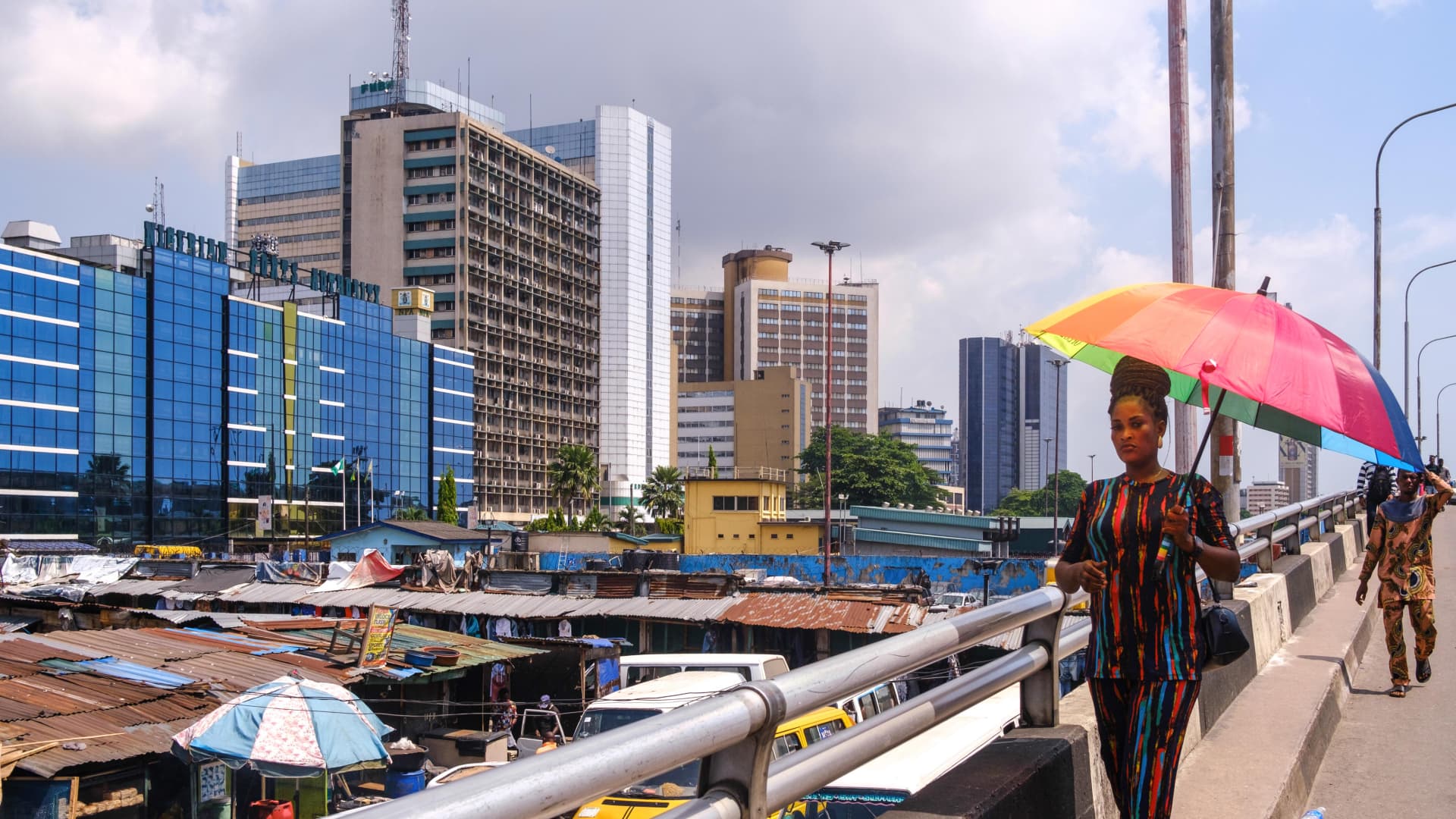
A pedestrian in the Lagos Island district of Lagos, Nigeria, on Monday, Nov. 14, 2022.
Bloomberg | Bloomberg | Getty Images
The Central Bank of Nigeria on Tuesday hiked its key interest rate by 200 basis points, as Africa’s largest economy looks to recover from a historic currency crisis and soaring inflation.
The CBN announced that its main monetary policy rate would rise to 24.75% from 22.75%, in its second consecutive hike.
Governor Olayemi Cardoso told a press conference that policymakers believed they need to continue tightening in order to tame runaway inflation, according to Reuters.
Minutes published last week from the central bank’s February meeting showed policymakers arguing the hawkish case for aggressive interest rate hikes to tame sky-high inflation, which came in at an annual 31.7% in February, up from 29.9% in January and the highest rate since April 1996.
Nigeria’s naira currency has plunged by around 70% against the U.S. dollar over the course of a year, hitting an all-time low of around 1,600 naira to the dollar in late February.
However, it has since recovered some ground, trading around 1,400 naira as of Tuesday morning after the CBN announced that a $7 billion backlog of imports had finally been cleared.
IBADAN, Nigeria – Feb. 19, 2024: Demonstrators are seen at a protest against the hike in price and hard living conditions in Ibadan on February 19, 2024.
Samuel Alabi | Afp | Getty Images
The central bank’s latest minutes revealed that members of the Monetary Policy Committee held differing views on the drivers of inflation and naira weakness, which influenced their votes.
The MPC hiked rates by 400 basis points to 22.75% in February, but there were arguments for hikes as small as 100 basis points and as large as 450 from committee members. Governor Cardoso advocated for a 425 basis point move, noted David Omojomolo, Africa economist at Capital Economics.
“Doves warned about the risk of hiking rates too aggressively and the structural nature of inflation, while hawks emphasised the need to restore the CBN’s credibility and move real interest rates into positive territory to further support the naira via extra foreign investment,” he added.







